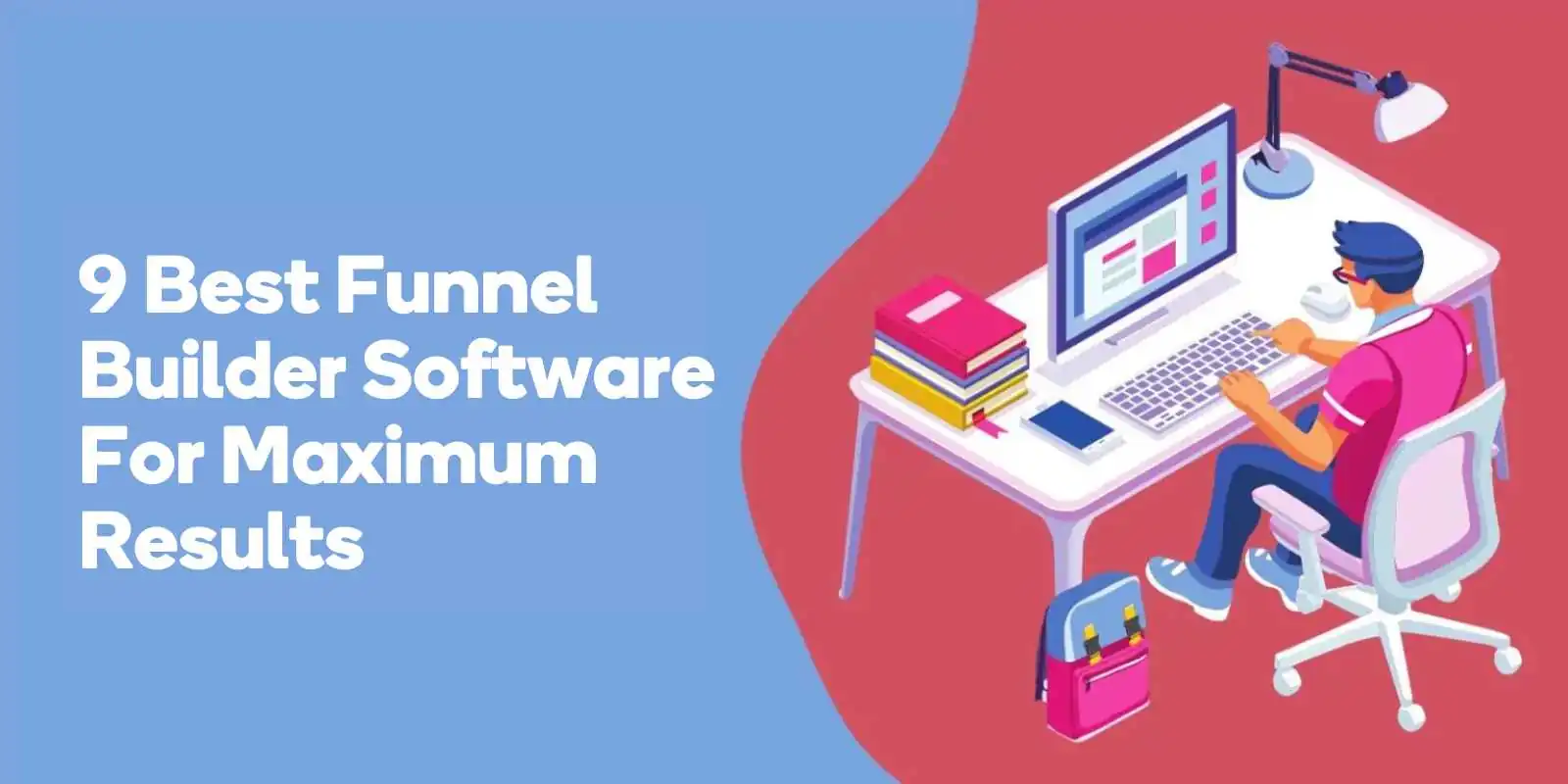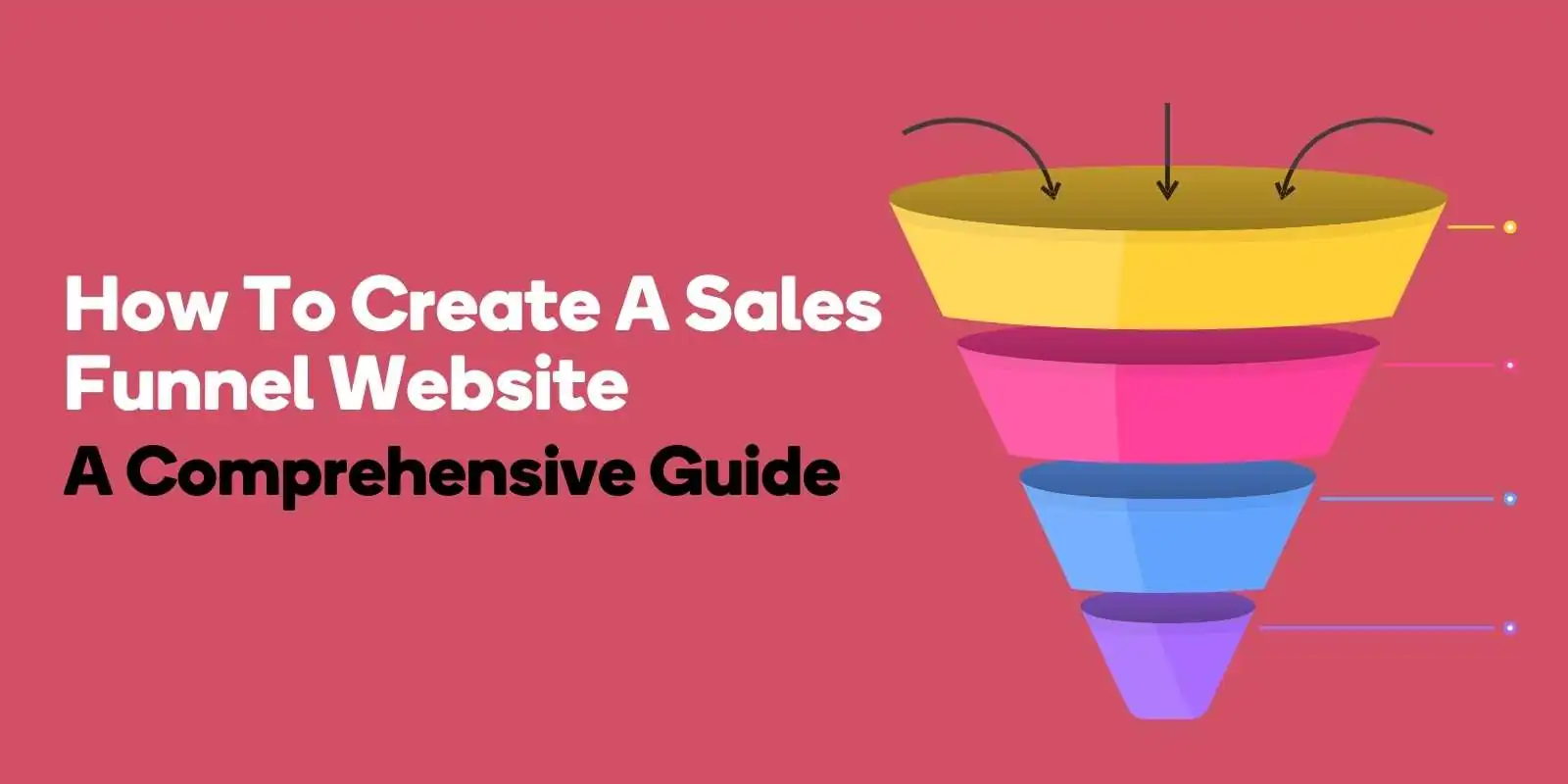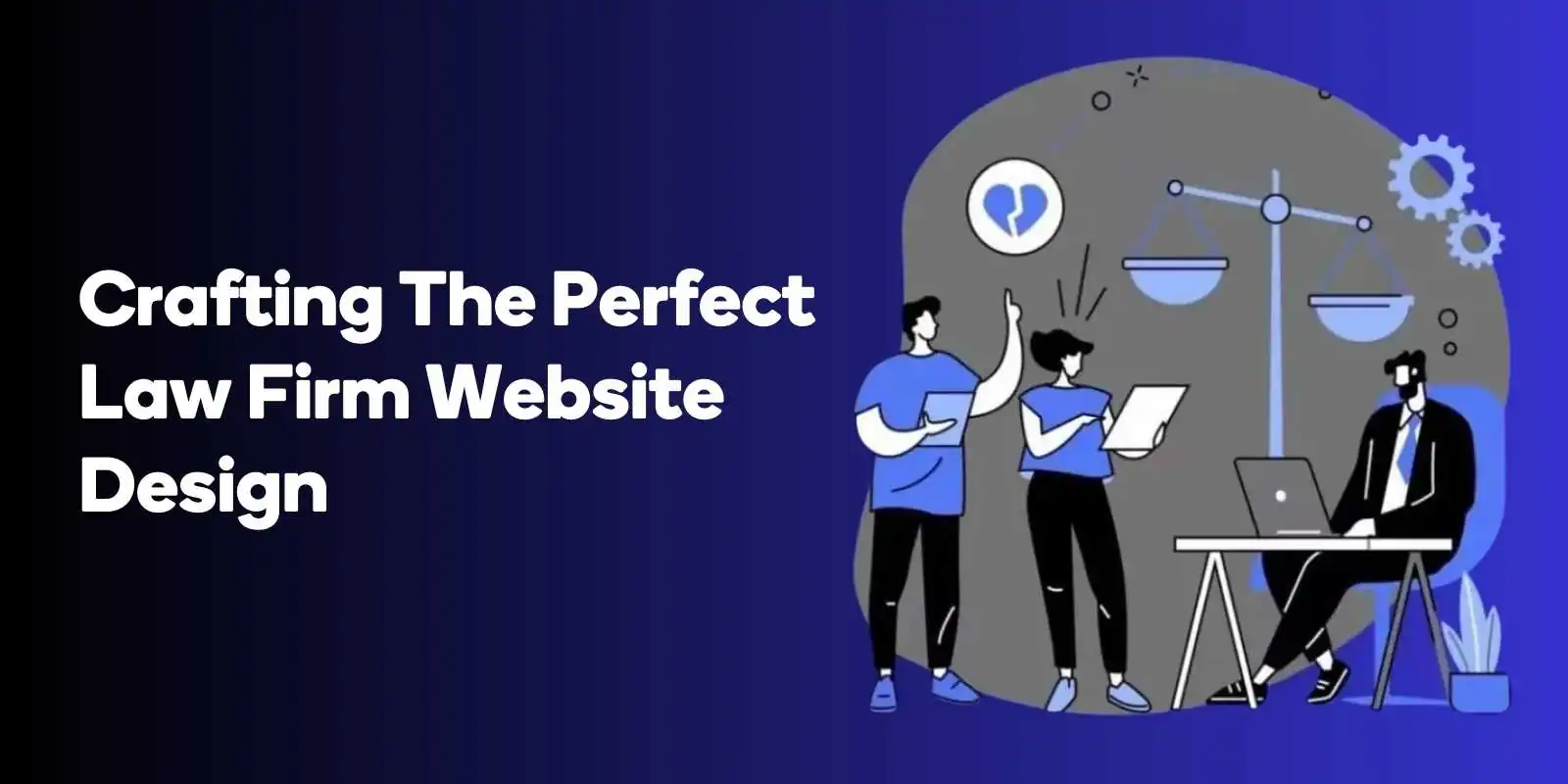Are you prepared to harness the potential of a professional small business website design for your own business?
Join with me on this exciting journey as we reveal expert insights and invaluable tips from leading web design companies, guiding you towards creating a successful small business website.
Essential Elements of Small Business Website Design
A successful small business website is more than just a digital storefront.
It’s an engaging and informative experience that caters to the needs and interests of your target audience in order to build trust and credibility.
To achieve this, there are three key components of company website you need to focus on: layout and navigation, visual design, and content quality.
- Layout and navigation are the backbone of your website. It determines how users interact with and navigate through the different pages.
- Visual design, on the other hand, is responsible for creating an appealing and memorable online presence that captures your brand identity.
- Lastly, content quality ensures that your website provides valuable information that addresses the needs and interests of your target audience, ultimately driving conversions and customer loyalty.
Layout and Navigation
A well-designed layout and navigation structure play a crucial role in keeping visitors engaged and guiding them to the information they’re seeking.
An easy-to-navigate website will encourage users to explore more pages and spend more time on your site, while a cluttered and confusing layout may drive them away.
One way to create a clean and organized layout is by utilizing white space, the empty space on web pages that does not contain any text, images, or other content.
By incorporating white space, you can make your content more legible and navigable, drawing attention to specific areas of your website, such as call-to-action buttons or contact details.
When designing your small business website, it’s also essential to optimize it for mobile users, as a significant portion of your audience will likely access your site from their smartphones or tablets.
To create a mobile-friendly layout, use large, clear fonts for easy readability on small screens, and maintain a straightforward layout that is not overcrowded and easy to navigate.
Additionally, optimize images to ensure they load quickly and do not impede page loading speed.
Visual Design
In a world where first impressions matter, having a professional and visually appealing website is essential for capturing and retaining the attention of your target audience.
The visual design elements of your website, including color schemes, fonts, and imagery, contribute to its overall look and feel, helping to create a cohesive and memorable brand identity.
To achieve a visually stunning website, consider working with a professional web designer or utilizing high-quality premade templates available on most website designers and builders.
Be mindful of the visual hierarchy, which is the arrangement of design elements on a page to emphasize the most important elements.
Also, pay attention to your color scheme, as it has the potential to influence people’s perception of your website and can boost brand recognition by 80%.
Selecting a reader-friendly font and incorporating high-quality images are other essential aspects of visual design, ensuring that your website is not only visually appealing but also informative and engaging.
Content Quality
Your website’s content is the heart of your own site, and it’s essential to provide well-written, engaging, and informative content that addresses the needs and interests of your target audience.
By doing so, you can establish trust and credibility with your visitors, ultimately resulting in increased conversions and customer loyalty.
To ensure high-quality content, focus on being factually accurate, comprehensive, and engaging. Create buyer personas to better understand your audience and tailor your content accordingly.
Make your content educational and up-to-date, providing valuable information that your audience can apply in their own lives.
Additionally, ensure your content is accessible to all users, and don’t forget the importance of headings, testimonials, and effective calls-to-action in driving engagement and conversions.
Choosing the Right Platform for Your Small Business Website
Deciding on the right platform for your small business website is crucial in determining its success.
There are various website development and building platforms available, each with its own set of features, pricing, and ease of use.
Some of the most popular options include drag-and-drop website builders, WordPress, and e-commerce platforms.
Drag-and-drop website builders are ideal for small business owners with limited web design experience, as they provide a user-friendly interface for creating websites without the need for coding knowledge.
WordPress, on the other hand, is a more versatile and customizable option that may require more technical skills but offers greater flexibility in terms of design and functionality.
Finally, e-commerce platforms are specifically designed for businesses that sell products online, providing all the necessary tools for creating and managing an online store.
Drag-and-Drop Website Builders
Drag-and-drop website builders, such as Wix, Weebly, and Squarespace, offer an accessible way for small business owners to create a professional-looking website without the need for extensive technical skills.
These platforms provide a user-friendly interface where users can easily drag and drop elements onto their website, creating a customized design that suits their needs and preferences.
While drag-and-drop website builders are convenient and cost-effective, they may come with some limitations in terms of customization and search engine optimization.
However, for small businesses with limited resources and technical skills, these platforms can be a suitable and affordable option for creating a functional and visually appealing website.
WordPress
WordPress is a popular choice for small business websites due to its cost-effectiveness, user-friendly interface, customizability, and SEO-friendly features.
This versatile platform provides an extensive array of customization options, such as themes, premium plugins, and widgets, allowing you to create a website that is tailored to your individual requirements and objectives.
However, using WordPress may come with some potential drawbacks, such as security concerns, the need for frequent updates, and limited customization options compared to other web development tools.
Nevertheless, with the right technical skills and resources, WordPress can be a powerful platform for creating a highly customized and professional small business website.
E-commerce Platforms
For small businesses selling products online, e-commerce platforms like Shopify and BigCommerce provide a comprehensive solution for creating and managing an ecommerce website or online store.
These platforms offer a range of features specifically designed for e-commerce, such as product listings, inventory management, payment processing, and shipping logistics.
While e-commerce platforms can be incredibly useful for small businesses with an online store, they may also come with some potential drawbacks, such as security threats, competition, IT issues, and shipping logistics.
However, if your small business primarily focuses on selling products online, investing in an e-commerce platform can be a wise choice for streamlining your operations and website costs, and ensuring a seamless shopping experience for your customers.

Award-Winning
Sales Funnel & Website Expert
Discover How My Agency Can Grow Your Business
- Website: Our websites are the perfect blend of form and function.
- Sales Funnel: We build sales funnels that turn leads into customers.
- SEO: Get found online with our expert SEO services.
DIY vs. Hiring a Professional Website Designer
When it comes to creating a small business website, you have two main options: building it yourself using a website builder or hiring a professional website designer.
Both approaches have their advantages and disadvantages, depending on factors like your time, budget, and technical skills.
Building your own website using a website builder can be a cost-effective and accessible option for small business owners with limited resources and technical skills.
Drag-and-drop website builders, in particular, make it easy to create a professional-looking website without the need for coding knowledge.
However, DIY website web design companies may come with limitations in terms of creating a custom website and search engine optimization.
On the other hand, hiring a professional website designer can save you time and effort while ensuring a more tailored and high-quality website design.
A professional website designer can bring expertise, faster turnaround, and higher-quality results to the table. However, this option may come with a higher price tag and may require ongoing website maintenance costs.
Advantages of DIY
Creating your website using a website designer or builder can offer several advantages, such as cost savings, control over design, and learning opportunities.
Website builders are often available at a low cost or free-of-charge and can be utilized by users with minimal experience.
Building your website yourself can save you hundreds or even thousands of dollars compared to hiring a professional website designer.
Additionally, DIY website design gives you full control over the whole site design process, allowing you to create a website that truly reflects your brand and vision.
It also provides an opportunity to learn new skills and become more familiar with the website building process, which can be beneficial for future projects or website updates.
Advantages of Hiring a Professional
Working with a professional web designer can provide several benefits, such as expertise, faster turnaround, and higher-quality results.
A professional web designer can develop a website that is tailored to your individual requirements and objectives, ensuring a distinctive appearance and feel for your website that will help it stand out from the competition.
In addition, an experienced web developer, who is also a professional web designer, can provide customer support to assist in resolving any issues with the website, and design companies minimize mistakes by ensuring the website is optimized for speed and performance, and provide insight into user preferences by analyzing user data and suggesting improvements.
Partnering with a web development firm can further enhance these benefits.
While hiring a professional web developer or designer may come with a higher price tag, the results can often surpass any self-made attempts.
Optimizing Your Small Business Website for Search Engines
Search engine optimization (SEO) is an essential aspect of small business website design, as it helps your website rank higher on search engine results pages (SERPs) and attract more organic traffic.
Implementing effective SEO strategies, such as keyword research, on-page SEO, and off-page SEO, can significantly improve your website’s visibility and performance.
Keyword research is the process of identifying relevant terms and phrases to target in your website content, helping you connect with your target audience and drive conversions.
On-page SEO involves optimizing various elements on your website, such as title tags, meta descriptions, and header tags, to improve its search engine ranking.
Off-page SEO focuses on strategies like link building, social media promotion, and online reputation management, aimed at increasing the authority of your website and improving its ranking in search engine results.
Keyword Research
Keyword research is a crucial aspect of SEO, as it helps you identify the terms and phrases that are relevant to your website’s content and target audience.
By targeting these keywords in your website content, you can improve your search engine ranking and attract more organic traffic.
There are various methods and tools available for conducting keyword research, such as analyzing your competitors’ websites, using keyword research tools like Google’s Keyword Planner, and exploring related search terms on search engines.
By identifying the most relevant and high-performing keywords for your small business website, you can create content that effectively addresses the needs and interests of your target audience, ultimately driving engagement and conversions.
On-Page SEO
On-page SEO refers to the optimization of various elements on the landing page of your website to improve its search engine ranking.
Some key on-page SEO best practices include proper use of title tags, meta descriptions, and header tags.
Title tags are an important part of a small business’s search engine optimization strategy. They are the descriptive text that appears on a search engine’s results page when a query is made.
Creating captivating title tags can help draw the attention of potential customers and increase the click-through rate of your website.
Meta descriptions are brief summaries of text displayed beneath a link on search engine results pages, providing potential customers with an overview of the content they can expect to find on your website.
Ensuring that your title tags and meta descriptions are optimized for your target keywords can significantly improve your website’s search engine ranking and visibility.
Off-Page SEO
Off-page SEO involves optimizing your website for improved visibility in search engine results pages (SERPs) through the building of links from other websites, social media promotion, and online reputation management.
By increasing the authority of your website through these strategies, you can improve its ranking in search engine results and attract more organic traffic.
Link building is the process of acquiring backlinks from other websites, which can help boost your website’s authority and search engine ranking.
Social media promotion involves sharing your website content on various social media platforms, increasing its visibility and reach.
Online reputation management focuses on actively monitoring and managing the public perception of your business, ensuring that your online reputation remains positive and engaging.
By implementing these off-page SEO strategies, you can enhance your small business website’s search engine performance and drive more organic traffic.
Incorporating Social Media and Email Marketing into Your Small Business Website Design
Integrating social media and email marketing into your small business website design can significantly enhance its overall performance and conversion rates.
Both strategies can help drive engagement, foster customer relationships, and increase website traffic.
Social media integration involves incorporating social media buttons, feeds, and sharing options into your website design, allowing visitors to easily interact with your brand on various platforms.
Email marketing, on the other hand, focuses on capturing leads and nurturing customer relationships through targeted and personalized email campaigns.
Social Media Integration
Incorporating social media buttons, feeds, and sharing options into your website design can help increase its visibility and reach, as well as facilitate direct interaction with your current and potential customers.
By integrating social media into your website, you can showcase content from your social media accounts directly on your site, allowing visitors to easily share and engage with your content.
Some ways to integrate social media into your website include adding social share and follow buttons, embedding social media feeds, and allowing social logins for a seamless user experience.
By effectively integrating social media into your small business website design, you can strengthen customer relationships and bolster your brand’s online presence.
Email Marketing
Incorporating email marketing into your website strategy can provide numerous benefits, such as lead capture, fostering customer relationships, driving website traffic, and enhancing sales.
Furthermore, strategically integrating lead capture forms, newsletter sign-up options, and other email opt-in opportunities throughout your website, you can actively expand your email list and cultivate strong customer relationships through targeted and personalized email campaigns.
To ensure successful email marketing, it’s essential to focus on personalization, segmentation, clear calls-to-action, and consistent branding.
By monitoring and analyzing key performance indicators (KPIs) such as open rate, click-through rate, and conversion rate, you can continually optimize your email marketing efforts for maximum impact.
Measuring the Success of Your Small Business Website
To ensure the ongoing success of your small business website, it’s crucial to regularly track its performance and make data-driven improvements.
By monitoring website traffic, user behavior, and key performance indicators (KPIs), you can gain valuable insights into the effectiveness of your website and identify areas for growth and optimization.
Essential analytics tools like Google Analytics can help you track website traffic, user behavior, and conversion rates, providing a comprehensive overview of your website’s performance.
By analyzing this data, you can make informed decisions about improvements to your website and better target your marketing efforts to achieve your business objectives.
Analytics Tools
Analytics tools are crucial for monitoring your small business website’s performance and making data-driven improvements.
Google Analytics is one of the most widely used analytics tools, providing a wealth of information about website traffic, user behavior, and conversion rates.
Using analytics tools, you can track various metrics such as page views, bounce rate, average session duration, and goal completions.
By regularly monitoring these metrics and making necessary adjustments to your website design and content, you can optimize your website for improved performance and user engagement.
Key Performance Indicators (KPIs)
Key performance indicators (KPIs) are essential metrics that help you assess the success of your small business website and monitor progress towards your business objectives.
Some of the most critical KPIs for small business websites include bounce rate, average session duration, goal completions, page views, and conversions.
By regularly monitoring and analyzing your website’s KPIs, you can gain valuable insights into customer behavior and make data-driven improvements to your website.
This will ultimately help you achieve your business objectives and ensure the ongoing success of your small business website.
Frequently Asked Questions
Is Wix good for small business?
Yes, Wix is great for small businesses! It offers an intuitive drag-and-drop interface, hundreds of professionally designed and fully customizable templates, powerful SEO tools, and hundreds of apps. Wix has earned its place as one of the most popular website builders due to its wide range of features, ease of use, and affordability.
Overall, I think. Wix is a great option for small businesses looking for an easy-to-use platform with powerful features and customization options. With its intuitive drag-and-drop interface, hundreds of professionally designed templates, powerful SEO tools, and hundreds of apps, it’s no wonder why Wix is so popular.
How much does it cost to hire someone to build a website?
Building a website is an investment, and costs can vary significantly. On average, you should expect to pay anywhere between $100 and $500, though more complex sites may cost up to $30,000 or higher.
Furthermore, don’t forget the fees for a domain name (roughly $14.99 per year) and web hosting ($7.99 per month). All in all, the cost of building a website depends on your requirements and budget.
How much does it cost to design a website for a small business?
Creating a website for your small business can be done at an affordable price. Depending on the complexity of the project, you can expect to pay anywhere from $100-$30,000 or more.
Before getting started, you’ll need to save money to invest in domain and web hosting fees.
How to start a website?
Getting a website online in 10 easy steps. Research and select the best hosting provider. Choose the perfect domain name. Decide on the design of your site. Install WordPress.
Customize your theme. Install plugins. Add content to your landing pages. Optimize your site for SEO. Create social media accounts. Test and Launch Your Site.
What are the key components of a successful small business website?
Creating an effective small business website requires a well-designed layout, navigation that allows users to quickly find relevant information, visually pleasing visuals, and high quality content.
With these components in place, your website will be more successful.
Conclusion
In conclusion, crafting a professional and high-performing small business website necessitates thoughtful deliberation of several crucial elements.
These encompass aspects like layout and navigation, visual design, content quality, platform selection, SEO optimization, social media integration, and email marketing.
By incorporating the recommended insights and digital marketing tactics highlighted in this piece, you can unleash the true potential of your small business website, foster meaningful engagement, and amplify your conversion rates.
Seize the moment to invest in your online presence and position your small business for triumph in the digital era.

















